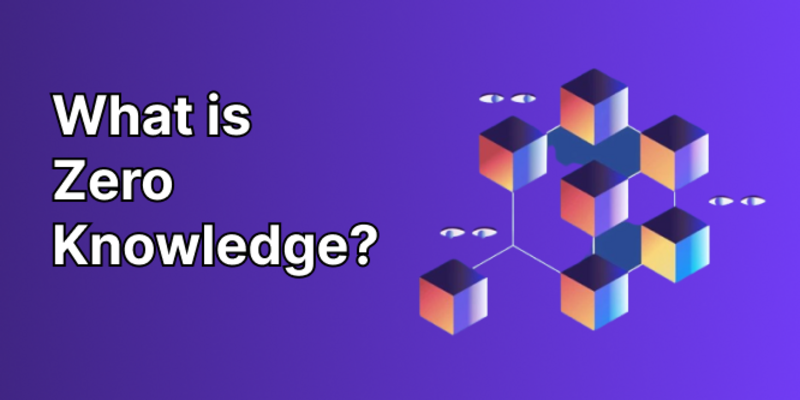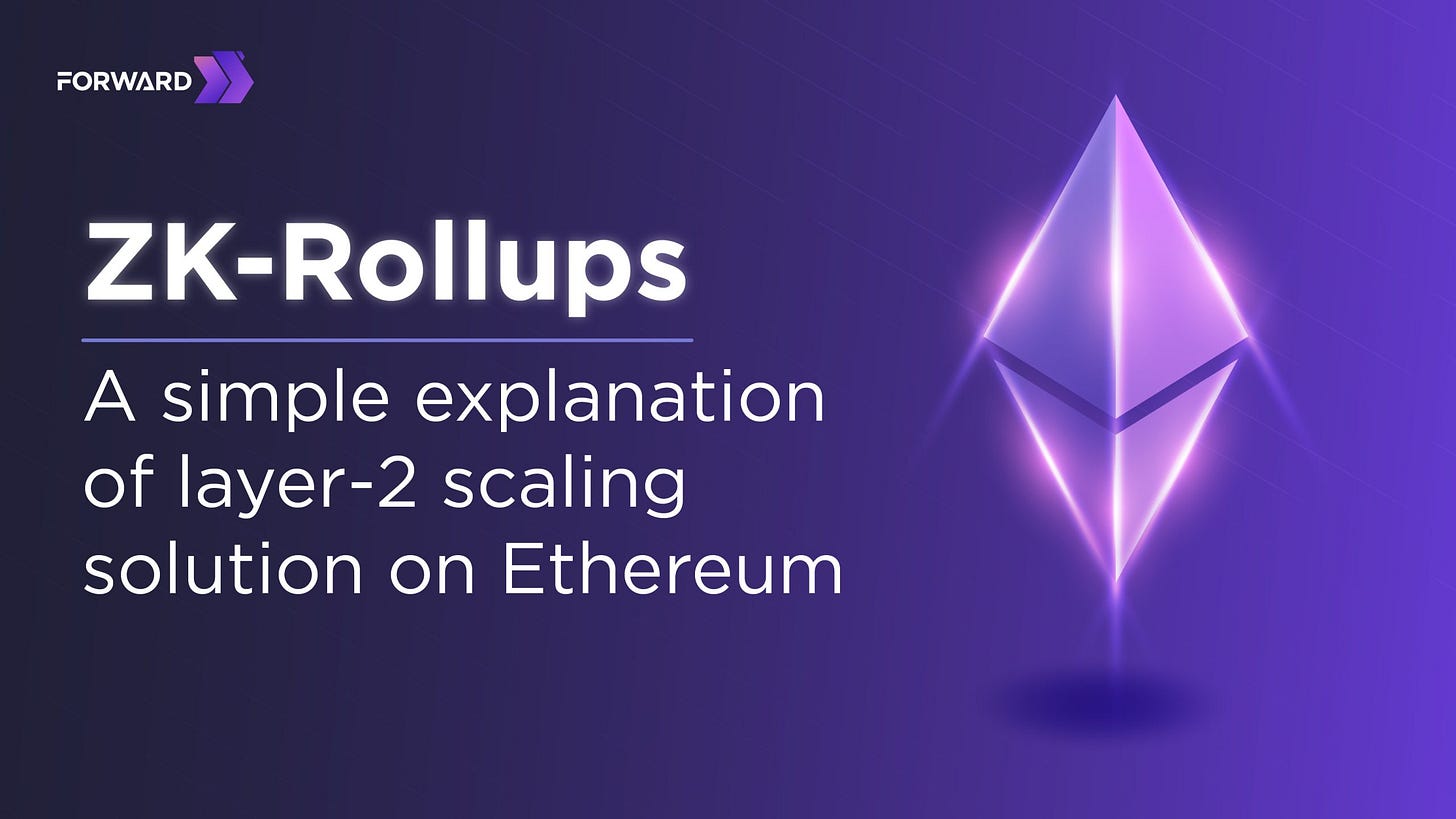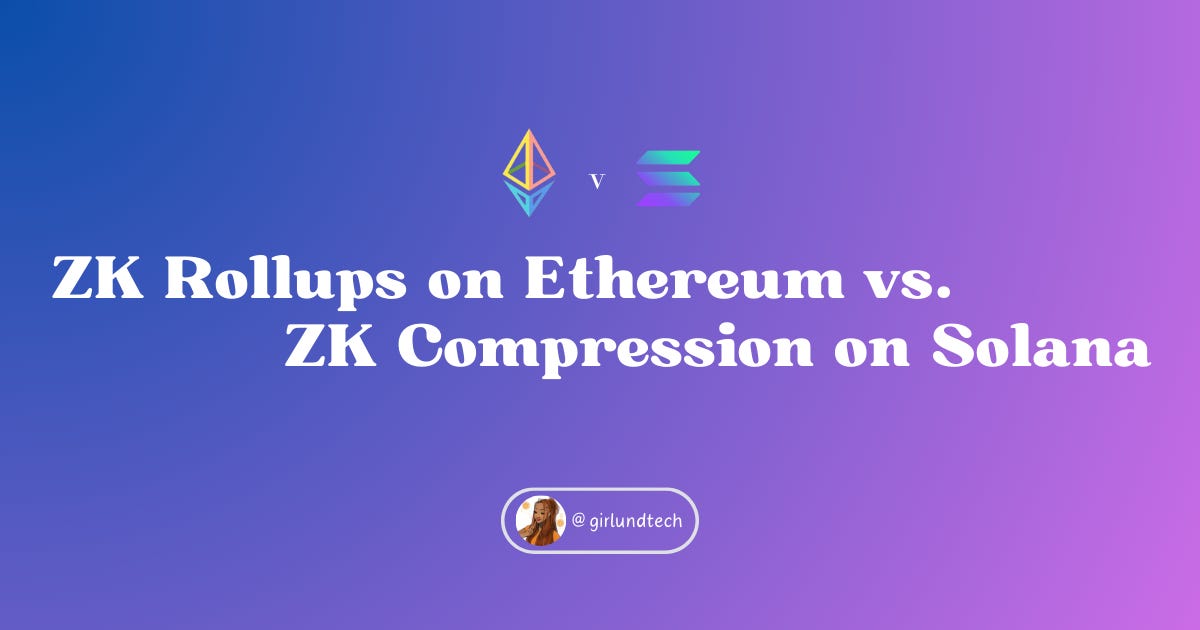Zero-Knowledge Proofs
Introduction to zero-knowledge Proofs
Zero-knowledge proofs ZKP refers to a cryptographic method used to prove to a validator that the data passed is true without revealing it.
It can also be said to be the simplest way to prove that you know something without giving it away.
how zero-knowledge proof works
ZKP works by having the verifier task the prover to perform some set of actions knowing fully well that the said action can only be performed accurately if the prover knows the actual information, and if there are chances where the prover is guessing the result of the actions then the they’ll be proven wrong by the verifier test
An example of this scenario
There’s a vault box that is encrypted with a passcode and to open you must be a verified member, A random person shows up where the vault is located and wants to get access to the vault, and there are only a few who knows the passcode to the vault
A verifier is waiting as he generates a random string challenge, the prover then combines the challenge string with the password, hashes the result and sends the hashed result to the verifier who in this case also knows the passcode to the vault, performs the same operation (combining the challenge with the password and hashing). And then compares his hash with the provers hash. If they match, the verifier is convinced the prover knows the passcode.
The decentralized nature of the blockchain and the application of ZKPs to this technology. ZKPs enable solutions like rollups which operate on the Ethereum protocol, significantly increasing transaction throughput without compromising security. For privacy, they allow verification of transactions and smart contract executions without revealing sensitive data. ZKPs enhance interoperability between different blockchains and enable advanced cryptographic applications such as privacy-preserving identity solutions and voting systems.
Going through how ZKPs are being applied to the Ethereum and Solana protocol
Zero Knowledge Proof on Ethereum
Zero-knowledge Proof is used in the Ethereum blockchain and it’s known to be ZK rollup. Ethereum blockchain is one of the blockchain technologies with vast potential but can be limited due to its transaction speed which can be slow and costly when the Ethereum protocol is stacked with queues of transactions in the mempool making it less scalable for users who can’t afford such high gas fees of transaction for their transactions to be processed and validated fast.
The ZK-rollup solves this problem, as it is a revolutionary Ethereum scaling solution introducing faster, cheaper, and more efficient transactions without compromising security.
How ZK-rollup Works On Ethereum
ZK-rollup works by bundling transactions into batches and executing them off-chain, A cryptographic proof is generated to verify the validity of all transactions in the bundle without revealing the specific detail of each transaction submitting the batch The proof and some compressed transaction data are submitted to the Ethereum mainnet protocol as a single transaction. The Ethereum network verifies the proof, ensuring the validity of all bundled transactions. If valid, the Ethereum state is updated to reflect the results of all transactions in the bundle.
This approach minimizes delays in funds transfer to Ethereum. ZK-Rollups employs data compression techniques to optimize on-chain data publication, ultimately reducing fees for users while maintaining transparency and security.
Zero Knowledge Proof on Solana
How ZK-Compression Works On Solana
Zk compression is a technique implemented on Solana to compress and verify large amounts of data or computation on the blockchain without needing to reveal the underlying data. This process can significantly reduce the amount of data that needs to be stored and processed on-chain, leading to enhanced performance and scalability.
By applying zero-knowledge proofs, large datasets or complex computations can be compressed into succinct proofs(cryptographic proof that is extremely small in size relative to the original data or computation it represents). These proofs can then be stored on the blockchain instead of the full data, significantly reducing the storage requirements. The compressed proofs are quickly and efficiently verified by any node on the network. This verification process is much less resource-intensive compared to processing the full data, which helps in maintaining the blockchain's performance. Already Solana network is programmed to process transactions fast and can record multiple in a single block.
An example of this technology implemented in real-life situations is;
A decentralized exchange DEX on the Solana chain wants to optimize its transaction throughput and reduce on-chain storage requirements while maintaining high security and privacy for its users. The DEX can make a majority of the order matching and trade execution off-chain. This includes finding a match for buys and sell orders determining the result of the trade, And executing the trade off-chain. The DEX generates a ZK proof that proves the correctness of the trade without revealing the individual transactions. The proofs include necessary information such as trade amount, matched orders, and the balances of the trader.
Instead of submitting each trade to the Solana network, the DEX submits the succinct zero-knowledge proofs. and the nodes verify these proofs to ensure the correctness of the underlying data then the new balances and state of the user’s accounts are updated on-chain based on the proof.
Also, this technique is particularly useful for applications that require storing large amounts of data, such as NFT metadata or complex financial records.
Difference between zk rollup and zk compression
The first major difference is in their primary focus. Ethereum's ZK rollups are primarily aimed at increasing transaction throughput by moving computation off-chain. Solana's ZK compression, on the other hand, focuses on reducing the storage footprint of on-chain data.
It's like comparing a highway system to a high-density storage facility. ZK rollups are building more lanes to handle more traffic, while ZK compression is finding ways to park more cars in the same amount of space.
Another difference is how they interact with their respective blockchain protocol. ZK rollups on Ethereum operate as a layer 2 solution, processing transactions off-chain and then submitting proofs to the main chain. ZK compression on Solana, however, is more deeply integrated into the base layer of the blockchain itself.
With privacy more inherent, they kind of differ in their respective way of privacy. ZK rollups inherently provide some level of privacy by only submitting proofs to the Ethereum mainnet, not the full transaction details while ZK compression, as currently implemented on Solana, is fully focused on efficiency rather than privacy, although the zero-knowledge aspect does have potential privacy applications.
All new technologies always look for ways to scale and user accessibility. ZK rollups potentially increase Ethereum's transaction capacity by orders of magnitude especially on the speed as there is no queueing of transactions in the mempool since it’s a layer 2 solution while ZK compression, which does not directly increase Solana's already high transaction throughput, ensures that this performance can be maintained long-term by managing data growth.
Use cases
Exploring the potential and current use case of these technologies, ZK rollups on Ethereum are being used in projects to create scalable decentralized exchanges and Defi protocols.
An example is;
Loopring and ZkSync are using ZK rollups to offer high-speed, low-cost trading and transfers on Ethereum.
On-demand for more innovation and undergoing research, the ZK roll-up potential is quite vast as the technology still touches the surface and there is more room for improvements. They could enable;
High-frequency trading on decentralized exchanges in contracts to how to order books, margins, etc isolated markets are quite complex to implement especially considering the security aspect of the blockchain. This helps to make such a possibility easier as it doesn’t have to compute those data on a chain but rather bundle it off the chain and check for its correctness before calling the on-chain to process it.
Efficient cross-chain bridges for interoperability between different blockchains
Scalable NFT marketplaces with instant transactions
On the other hand, ZK compression on the Solana network, although still in its early stage of implementation and more improvement is being made across its application.
One of its significance is the implementation of ZK compression for transaction history, which could significantly reduce the storage requirements for nodes.
Potential future use cases include:
Ultra-efficient decentralized storage solutions
Scalable on-chain voting systems for DAOs
Compact representation of complex smart contract states
Improved privacy features for transactions and smart contracts
Conclusion
whether it's Ethereum rolling up transactions or Solana compressing data, zero-knowledge proofs are proving to be a powerful tool in addressing the scalability challenges faced by blockchain networks. As these technologies continue to evolve, they promise to bring us closer to the dream of a fully scalable, efficient, and secure blockchain ecosystem.
The journey of zero-knowledge proofs in blockchain is just beginning, and the road ahead is filled with exciting possibilities. Who knows what other innovative applications of this technology we might see in the coming years? One thing is certain: the future of blockchain is looking increasingly... zero-knowledge.
Reference
https://www.theblock.co/post/301368/light-protocol-and-helius-labs-introduce-zk-compression-to-further-scale-solana-apps
https://www.zkcompression.com/
https://www.cointribune.com/en/zk-compression-on-solana-the-game-changer-that-is-igniting-the-crypto-sphere/
https://chain.link/education/zero-knowledge-proof-zkp
https://trustwallet.com/blog/zk-rollups-explained




